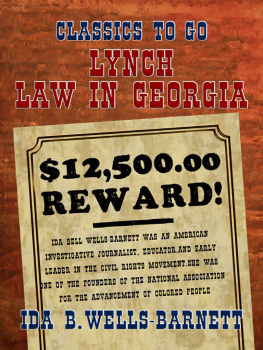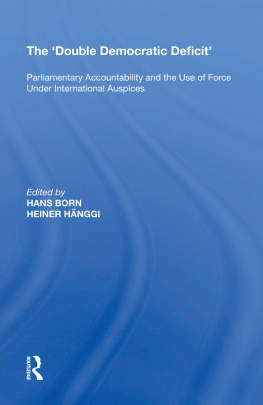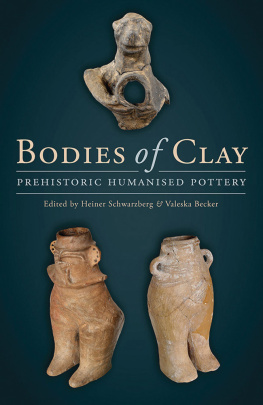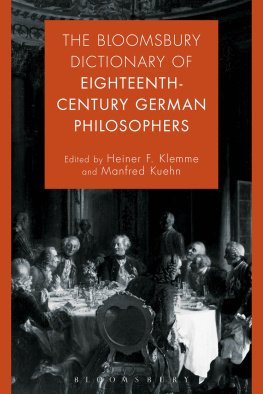Barnett - Heiner Müllers The Hamletmachine
Here you can read online Barnett - Heiner Müllers The Hamletmachine full text of the book (entire story) in english for free. Download pdf and epub, get meaning, cover and reviews about this ebook. year: 2016, publisher: Taylor and Francis, genre: Romance novel. Description of the work, (preface) as well as reviews are available. Best literature library LitArk.com created for fans of good reading and offers a wide selection of genres:
Romance novel
Science fiction
Adventure
Detective
Science
History
Home and family
Prose
Art
Politics
Computer
Non-fiction
Religion
Business
Children
Humor
Choose a favorite category and find really read worthwhile books. Enjoy immersion in the world of imagination, feel the emotions of the characters or learn something new for yourself, make an fascinating discovery.

- Book:Heiner Müllers The Hamletmachine
- Author:
- Publisher:Taylor and Francis
- Genre:
- Year:2016
- Rating:5 / 5
- Favourites:Add to favourites
- Your mark:
- 100
- 1
- 2
- 3
- 4
- 5
Heiner Müllers The Hamletmachine: summary, description and annotation
We offer to read an annotation, description, summary or preface (depends on what the author of the book "Heiner Müllers The Hamletmachine" wrote himself). If you haven't found the necessary information about the book — write in the comments, we will try to find it.
Heiner Müllers The Hamletmachine — read online for free the complete book (whole text) full work
Below is the text of the book, divided by pages. System saving the place of the last page read, allows you to conveniently read the book "Heiner Müllers The Hamletmachine" online for free, without having to search again every time where you left off. Put a bookmark, and you can go to the page where you finished reading at any time.
Font size:
Interval:
Bookmark:
Heiner Mllers The Hamletmachine
Im good Hamlet gime a cause for grief.
At first glance, readers of The Hamletmachine (1979) could be forgiven for wondering whether it is actually a play at all: it opens with a montage of texts that are not ascribed to a character, there is no vestige of a plot and the whole piece lasts a total of ten pages.
Yet, Heiner Mllers play regularly features in the theatres repertoires and is frequently staged by university theatre departments. David Barnett examines why such a seemingly obscure piece has proved so popular, introducing readers to Mller as an experimental, politically committed writer who confronts the shortcomings of his age in a compact and radically open play.
In four short, accessible chapters, this lively book unpicks the complexities of The Hamletmachines writing, considers the problems Mller poses for its performance and discusses two exemplary productions in order to show how the play can engage very different audiences.
David Barnett is a Professor of Theatre at the University of York.
The Fourth Wall
The Fourth Wall series is a growing collection of short books on famous plays. Its compact format perfectly suits the kind of fresh, engaging criticism that brings a play to life.
Each book in this series selects one play or musical as its subject and approaches it from an original angle, seeking to shed light on an old favourite or break new ground on a modern classic. These lively, digestible books are a must for anyone looking for new ideas on the major works of modern theatre.
Also available in this series:
J. M. Synges The Playboy of the Western World by Christopher Collins
Lerner and Loewes My Fair Lady by Keith Garebian
Samuel Becketts Krapps Last Tape by Daniel Sack
Thornton Wilders The Skin of Our Teeth by Kyle Gillette
Harold Pinters Party Time by Graham White
Coming soon:
Georg Bchners Woyzeck by Karoline Gritzner
Benjamin Brittens Peter Grimes by Sam Kinchin-Smith
J. M. Barries Peter Pan by Lucie Sutherland
Sondheim and Wheelers Sweeney Todd by Aaron Thomas
Errol Johns Moon on a Rainbow Shawl by Lynnette Goddard
Caryl Churchills Far Away by Dan Rebellato
August Wilsons Joe Turners Come and Gone by Ladrica Menson-Furr
Tim Crouchs An Oak Tree by Catherine Love
Rogers and Hammersteins The Sound of Music by Julian Woolford
Heiner Mllers The Hamletmachine
David Barnett

First published 2016
by Routledge
2 Park Square, Milton Park, Abingdon, Oxon OX14 4RN
and by Routledge
711 Third Avenue, New York, NY 10017
Routledge is an imprint of the Taylor & Francis Group, an informa business
2016 David Barnett
The right of David Barnett to be identified as author of this work has been asserted by him in accordance with sections 77 and 78 of the Copyright, Designs and Patents Act 1988.
All rights reserved. No part of this book may be reprinted or reproduced or utilized in any form or by any electronic, mechanical or other means, now known or hereafter invented, including photocopying and recording, or in any information storage or retrieval system, without permission in writing from the publishers.
Trademark notice: Product or corporate names may be trademarks or registered trademarks, and are used only for identification and explanation without intent to infringe.
British Library Cataloguing-in-Publication Data
A catalogue record for this book is available from the British Library
Library of Congress Cataloguing-in-Publication Data
A catalog record for this title has been requested
ISBN: 9781138192775 (pbk)
ISBN: 9781315639673 (ebk)
Typeset in Bembo
by Out of House Publishing
Contents
The playwright
Heiner Mller was born in Eppendorf, a village in the German province of Saxony, in 1929, and died in the nations capital, Berlin, in 1995, aged 66. In the early 1990s, he noted with typical irony: its a privilege for a writer to see the demise of three states in one lifetime. The Weimar Republic, the Fascist State and the German Democratic Republic [GDR]. I doubt Ill experience the fall of the Federal Republic any more. As is evident, the playwright lived through a great deal of upheaval, but what is perhaps more important is that he drew on the seismic shifts in German and European history as material for his work.
While Mller, at the age of 4, may not have been that conscious of the fall of the Weimar Republic, he certainly felt the full force of Nazi barbarism at a young age. His father, a Social Democrat, was arrested by the Nazis and interned in a concentration camp for political prisoners before being released after a number of months. Mller was 16 at the close of the Second World War and chose to remain in the GDR, Germanys socialist state, when his parents fled west to the Federal Republic of Germany in 1951. It was the GDR that introduced him to the contradictions of socialism, a system he at once supported and scrutinized. He found that his plays were often censured, cancelled or banned, yet he would never give up his commitment to progressive politics and social justice.
By the time the Berlin Wall was opened in November 1989, Mller was already a writer with an international reputation and was free to travel the world, a privilege shared by only handful of fellow citizens of the GDR. Germany was reunified in October 1990, and this effectively marked the start of a lean period for a productive playwright. The tensions between East and West, between socialism and capitalism, were dissipating, and in this time of rapid transition, he found himself without the historical and political material that had previously driven his work. Instead, he became a member of a five-man management team at the Berliner Ensemble (the City of Berlin appointed no women), the theatre company co-founded by his most important influence, Bertolt Brecht. By 1995, in-fighting had led Mller to assume sole control. His reign did not last long, however: weakened by treatment for cancer of the gullet, he died on 30 December.
Mller started writing at an early age and helped found a collective of young authors in 1948. His breakthrough as a playwright came in 1957 when he, together with his wife, Inge, wrote a play about a record-breaking worker called The Wage Sinker. While one might suppose that it was a simple celebration of heroic labour, the play is anything but: Balke, the productive innovator, was just as dedicated a worker under the Nazis as he was under socialism, and his efforts, as the plays title suggests, are detrimental to his colleagues. This play already displays Mllers keenness to identify and expose contradictions that need to be confronted if change is to take place.
Mller continued to set his plays in the GDR, yet when one was cancelled after its first performance in 1961, the year the Berlin Wall was erected, and another was effectively banned before it could reach the stage in 1965, he turned his attention to ancient Greek myths as a way of dealing with the problems of the present. His version of Philoctetes (1965), for example, returns to Sophocless play and uses the three main figures to represent different political positions. Odysseus brings Neoptolemus to the island of Lemnos, on which Philoctetes has been abandoned, together with his magic bow and arrows. The pair seek to convince Philoctetes through deception to part with the weapon they think might turn the Trojan War in their favour. In Mllers version, Odysseus is the political pragmatist, prepared to use any means necessary to secure his ends; Neoptolemus his zealous accomplice; and Philoctetes the embittered and aggrieved victim of other peoples decisions.
Next pageFont size:
Interval:
Bookmark:
Similar books «Heiner Müllers The Hamletmachine»
Look at similar books to Heiner Müllers The Hamletmachine. We have selected literature similar in name and meaning in the hope of providing readers with more options to find new, interesting, not yet read works.
Discussion, reviews of the book Heiner Müllers The Hamletmachine and just readers' own opinions. Leave your comments, write what you think about the work, its meaning or the main characters. Specify what exactly you liked and what you didn't like, and why you think so.
















